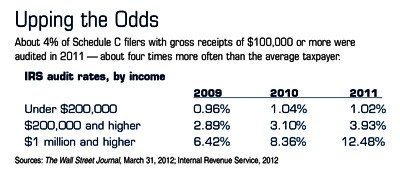Artificial intelligence (AI) is an important concept in
today’s world. Through AI, many jobs have been eliminated or at least made more
streamlined. And, now, many speculate that accounting will be the next industry
to find itself impacted by AI.
Part of the reason for this speculation is the fact that a
German software firm recently acquired $3.5 million in financing for an AI
program known as Smacc, which is designed to help businesses automate their
accounting.
The software has a lot of features that are getting people
excited, such as its ability to review receipts, its math-checking features,
and its ability to “learn” and apply what it has learned to future projects and
tasks.
Another nice feature of this program is that information can
be checked into at any time, allowing businesses to really stay on top of their
financial situations.
Of course, despite all of these benefits, AI programs like
this one definitely aren’t perfect. And, since such programs are relatively
new, it makes sense that it would take some time to work out the “bugs.”
For this reason, businesses and individuals are cautioned
not to give up on traditional accountants just yet. In fact, even for those who
do decide to give Smacc a try, it’s worthwhile to have an accountant who can
check up on the program and make sure all tax matters are being handled
correctly.
While it seems some people are ready to take the plunge into
the world of AI, it’s smart to tread cautiously and to not give up on real
human help just yet.














 Small-business owners and independent contractors may be more likely than other taxpayers to benefit from the home-office tax deduction, which has an average value of more than $2,600.1 But some taxpayers may be hesitant to claim this potential tax benefit on their personal tax returns, fearing that it could trigger an IRS audit.
Small-business owners and independent contractors may be more likely than other taxpayers to benefit from the home-office tax deduction, which has an average value of more than $2,600.1 But some taxpayers may be hesitant to claim this potential tax benefit on their personal tax returns, fearing that it could trigger an IRS audit. To qualify for a write-off, a home office must be used in a trade or business activity — not to manage personal investments or pursue a hobby. It must also be used regularly and exclusively for business. If part of your home is used to provide day care or to store products, you may not have to meet the exclusivity test. In addition, your office must meet at least one of the following three criteria:
To qualify for a write-off, a home office must be used in a trade or business activity — not to manage personal investments or pursue a hobby. It must also be used regularly and exclusively for business. If part of your home is used to provide day care or to store products, you may not have to meet the exclusivity test. In addition, your office must meet at least one of the following three criteria: